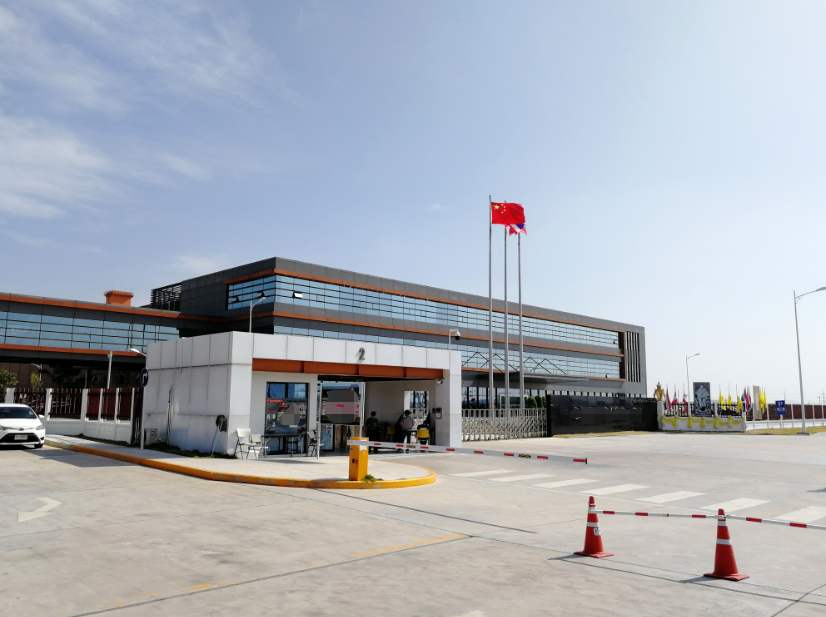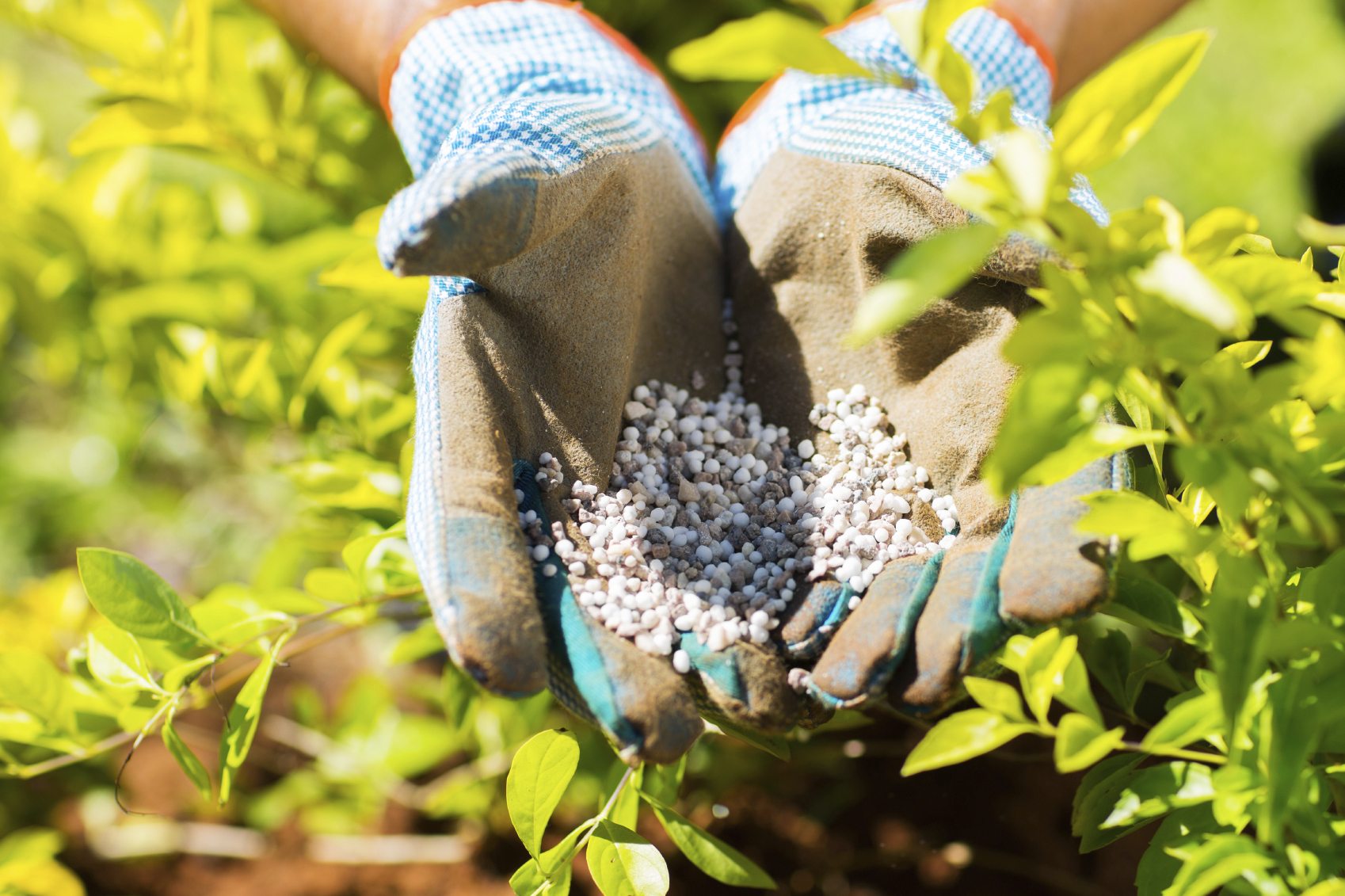Introduction to Modern Agricultural Fertilizers
The transformational role of agriculture fertiliser companies cannot be underestimated, and their role in shaping modern farming is now profound and far-reaching. The companies have not just become an important pillar in increasing crop yields, but have also become a leading force in advancing sustainable agriculture. With the need for the global agricultural sector to increase productivity while also adopting sustainable practices is increasing significantly as the world’s population continues to grow. The responsibility of fertiliser companies has also grown in line with the growing need. The companies have continued to innovate to ensure they meet the dual goal of increasing yields as well as adopting more sustainable agricultural practices.
A shining star in this sector is SHANDONG LOYAL CHEMICAL CO., LTD, which has consistently followed its policy of innovation and quality to find new ways of meeting the growing demand for fertilisers. The renowned agricultural scientist Dr James Robinson says: ‘Companies like SHANDONG LOYAL are one of the key sources of agricultural innovation, supplying the tools that allow crop yields to increase and become more sustainable.’ Their work is essential to modern agriculture – not only does it help to feed the world, it brings cutting-edge methods and materials that raise the bar for the industry as a whole.
Every time I reflect on the true depth of scope of their work, it is a revelation. These companies do not just produce fertilisers to make farms more productive. With every product, they are shaping the agricultural world of tomorrow; one in which food production can continue to sustain the global population, even as concerns about the climate grow. In this introduction, I set the stage for exploring how agriculture fertiliser companies such as SHANDONG LOYAL are evolving the role of fertilisers to help fuelled the growth of the industry while proving sustain and innovation across the world.
Impact of Fertilizer Companies on Global Agriculture
Agriculture fertilizer companies not only have a domestic impact but also a global one. The effects of major downturns in the global agriculture industry were felt widely. They’ve reshaped farming practices in every corner of the Earth, and they completely transformed how farmers think about and cultivate their own product. Thanks to their advanced since the 20th century, plant cultivation has drastically improved, with agriculture productivity reaching new heights. Without the help of better farming techniques and environmently friendly fertilisers, it would not be possible to feed the entire population our food we need.
Statistics help to illustrate the transformative effects of new fertilisers: according to figures from the Food and Agriculture Organization, in modern fertilising regions yields can be as much as 50 per cent greater than in traditional regions. These gains are critical at a time when hunger has become an increasingly pressing concern.
Here are some of the supporting case studies. In Sub-Saharan Africa, porous fertilisers have enabled marginal lands to come into cultivation. As the agricultural economist Sarah Lin at the University of Cambridge has written: ‘The strategic use of enhanced-efficiency fertilisers [in tropical countries] has led to increased crop production over the past decade, even as they spared the conversion of large land areas – crucial to mitigate destruction of natural habitats.’
Furthermore, more farmers are capable of carrying out agricultural work with chemicals to boost agricultural productivity, and the manufacture of agricultural fertiliser provides job opportunities to more people.SHANDONG LOYAL CHEMICAL CO., LTD has been actively undertaking modernisation in the field of agriculture fertilisers, involving in research and development, patenting and testing, heading towards customised solutions and product values to meet diversified regional needs, making the grand benefits of agricultural innovation reach farmers across the country more effectively and efficiently with different climate conditions.
It shows how important these fertiliser companies – blamed by green economy advocates for farm-input dependence, soil degradation and pollution – have been, and will continue to be, as a vital part of solving a real-world ‘tragedy of the commons’. They have helped farm productivity at lower environmental costs and, through their innovations today, will help bring a world where higher yield and environmental sustainability go hand in hand.

Technological Advancements in Fertilizer Production
Technological advancements have reformed the agriculture fertiliser companies which has converted the industry into new areas of certainty and sustainability. These advancements not only improve the agriculture fertiliser capacity to increase crop output, but also reduce the environmental damage of agriculture activity.
At the forefront are biotechnologies that allow specific fertiliser compositions to be engineered to match the needs of individual soils and crops, resulting in enhanced utilisation efficiencies of nutrients and lesses wastage and leaching of chemicals in to waterbodies. Nano-fertilisers ability to delivered nutrients at nano-scale provides greater absorption rates which, in turn, enables reduced quantities of chemicals to be used.
Emily Tran, chief research fellow in agricultural chemistry at the Printing Ink and Coatings Institute, said: ‘Nano-fertilisers and slow-release compounds improve how and when nutrients are released to plants. Instead of providing nutrients at constant rates, nano-fertilisers are designed to meet the uptake dynamics of plants more naturally.’ This not only prevents losses and excess runoff – with the consequent environmental ‘pollution’ – to rivers and groundwater but also ensures that plants get nutrients when they need them most, to encourage growth.
In addition, the technology they use incorporates their production process: many agriculture fertiliser companies have integrated smart automation and data analytics into their manufacturing process. Sensors, including those controlled by artificial intelligence (AI), monitor and make adjustments to the chemical processes involved in real time, ensuring a high-quality product and reducing resource losses.
Furthermore, there are advances on the environmental front in terms of technologies that capture and reuse by-products, such as the growing number of fertiliser plants that capture greenhouse gases generated during production and then reuse them in other industrial processes, all of which can help create a more circular economy model.
These technologies help fertiliser firms from the world’s top agriculture companies not only supply the world’s growing food needs, but support the creation of a more sustainable agriculture. They are the engine of continual innovation supporting our ability to feed the world in an environmentally sound way.
Spotlight on SHANDONG LOYAL CHEMICAL CO., LTD
SHANDONG LOYAL CHEMICAL CO., LTD is a leading member in the agriculture fertilizer companies area, who made significant enhancements to the fertilizer industry. We build our success and recognition on basis of a perfect combination of progressive and sustainable approach.
Shandong Loyal is a company that was founded more than 20 years ago as a regional supplier. Today, it has become the second-largest fertilizer producer in China, and it has expanded into new markets in Asia and Latin America. Its success raises important questions for historians, sociologists, business analysts and policymakers. How do small locally based firms become global companies? How do new players emerge in mature market sectors? What impact does new technology have on existing economic and social relationships?
At the heart of SHANDONG LOYAL’s continued success is a cutting-edge product line of fertilisers that are tailor-made for different types of agricultural applications. It has spent considerable resources and man-hours over the years to come up with chemical formulas that are not only more effective but also greener, less disruptive to the environment. For example, its line of enhanced-efficiency fertilisers are specially made to cut down on nitrogen runoff and uptake of nutriments by plants. These are options that farmers, concerned with both maximising yield and minimising ecological footprint look for.
‘They pay careful attention to sourcing ingredients and every aspect of their manufacturing process to minimise their environmental impact,’ comments Marco Fischer, agronomist and consultant to the environment. ‘They employ cutting-edge technologies that save water and energy, and we hope others in the industry will follow their example.’
There is also the SHANDONG LOYAL brand, which is safe for consumers and operated under strict control, which is based on its sustainable operation at all manufacturing stages. It also uses green renewable energy for entire production process, while operating under global environmental standard, showing it’s a modern eco-friendly corporate citizen.
The environmental benefits are equally weighty: avoiding chemical runoff and using sustainable raw materials help to preserve biodiversity, reduce soil degradation, and boost the general health of the agricultural ecosystems in which SHANDONG LOYAL operates.
In short, SHANDONG LOYAL CHEMICAL CO., LTD sets a great example for the achievement of environmental harmony and commercial gain in industrial society. Thanks to their constant efforts for scientific development and market expansion, they will play a more and more important role not only in industrial progress of agriculture fertilizer companies, but also in the sustainability of food systems around the world.

Challenges and Opportunities for Fertilizer Companies in 2024
A turbulent mix of challenges and opportunities for agriculture fertiliser companies in 2024 emerges from a time of increasing global food demand, coupled with rising environmental and regulatory pressure. At an inflection point in history, the response from these companies will contour the ever-evolving role for the agriculture industry.
Challenges Facing the Industry
These are the three most prominent challenges for a fertiliser company – tighter environmental regulations, often requiring less pollutive products and practices; more stringent government rules for cutting chemical runoff and emissions, pressing companies to innovate cleaner technologies and formulations; and risks around input-cost volatility, affecting the stability and predictability of a company’s operations.
Environmental challenges are also becoming particularly acute. The agriculture sector is implicated in eutrophication, the process in which runoff causes algal blooms, dead zones and other detrimental phenomena in aquatic ecosystems. ‘Fertiliser companies need to be responsible for the environmental legacies of their products,’ said Dr Linda Bradley, an environmental scientist and professor at University of Maine. ‘It’s not just a matter of regulation. It’s also a matter of our relationship to the planet and our sense of responsibility as corporate citizens.’
Opportunities Amidst Challenges
These are by no means insurmountable and, despite short-term challenges, there are major opportunities for those companies prepared to innovate and adjust to new market pressures. The growing demand for food, seen most rapidly around the world today, offers the fertiliser industry a long-term supply outlook. The world’s most rapid agricultural expansion is currently taking place in developing regions.
Technological advances also provide huge opportunities. New biotechnology, precision farming and artificial intelligence could help to create more efficient and less environmentally damaging fertiliser products. Improved technologies can help companies deliver nutrients where they are needed by crops with higher efficiency and lower wastage.
Future Trends and Market Dynamics
In the future, a shift in the dynamics of the fertiliser industry may occur due to investments in sustainable and smart fertiliser solutions.Companies producing fertilisers for agriculture will invest more in research and development to develop new products that will fit to the global sustainable drive.
To sum up, 2024 is going to be a period full of difficulties for agriculture fertilizer companies but also presents many suggestion of development and innovation. With advanced technologies and consideration of environment problems, they know how to handle the challenges and contribute more to world sustainable food production.. The wave of the future in agricultural fertilization will be decided by companies like SHANDONG LOYAL CHEMICAL CO., LTD.
Conclusion
An interesting dirty farming fertilizer manufacturer company’s topic is conducted in 2024 to show that agriculture fertilizer companies have a very important role in promoting the improvement of crop yield, and carrying out the revolution of agriculture.For example , SHANDONG LOYAL CHEMICAL CO., LTD is a leading phosphorous fertilizer manufacturing factory. They have tried to make a connection between the benefit that agricultural productivity brin to human survival and eco-friendliness. The approaches and the technology that they apply nowadays are not only needed to address the pressure of feeding the hungry now, but also laying a lasting foundation for a more sustainable agricultural future.
Considering what we’ve learned from the discussions, we can draw the conclusion that the constant innovations of agricultural fertiliser companies are important to face the challenge of improving food production and mitigating environmental impact. Looking to the future, it is important to ensure that fertilisers and farming practices are developed and utilised sustainably, as for modern agriculture to increase food production and safeguard the environment it is important to implement balanced agricultural policy both locally and globally.
Meanwhile, many companies will continue the trend towards innovation and environmental sustainability, and that is key to ensuring that the farming of tomorrow is as green and environmentally responsible as it is profitable. In 2025 and beyond, as the world moves toward 2025 and beyond, these are the companies that will continue to improve the global agricultural picture in a positive way.
Here are three scholarly references related to agriculture fertilizer companies:
- Fertilizing Nature: A Tragedy of Excess in the Commons – This article discusses the environmental and economic impacts of nitrogen fertilizer application, highlighting the substantial losses of nitrogen through various pathways and the associated costs. It emphasizes the need for better management practices to reduce these losses while maintaining agricultural productivity .
- A Better Use of Fertilizers is Needed for Global Food Security and Environmental Sustainability – This study explores the challenges and potential solutions for managing nitrogen fertilization more effectively at a global scale. It emphasizes the importance of improving nitrogen-use efficiency to support food security without exacerbating environmental problems.
- Fertilizer Use, Soil Health and Agricultural Sustainability – This article examines the role of fertilizer use in soil health and agricultural sustainability, addressing how inappropriate use can lead to negative impacts on soil function and ecosystem services. It also discusses strategies to balance fertilizer use with soil health preservation for sustainable agriculture .







